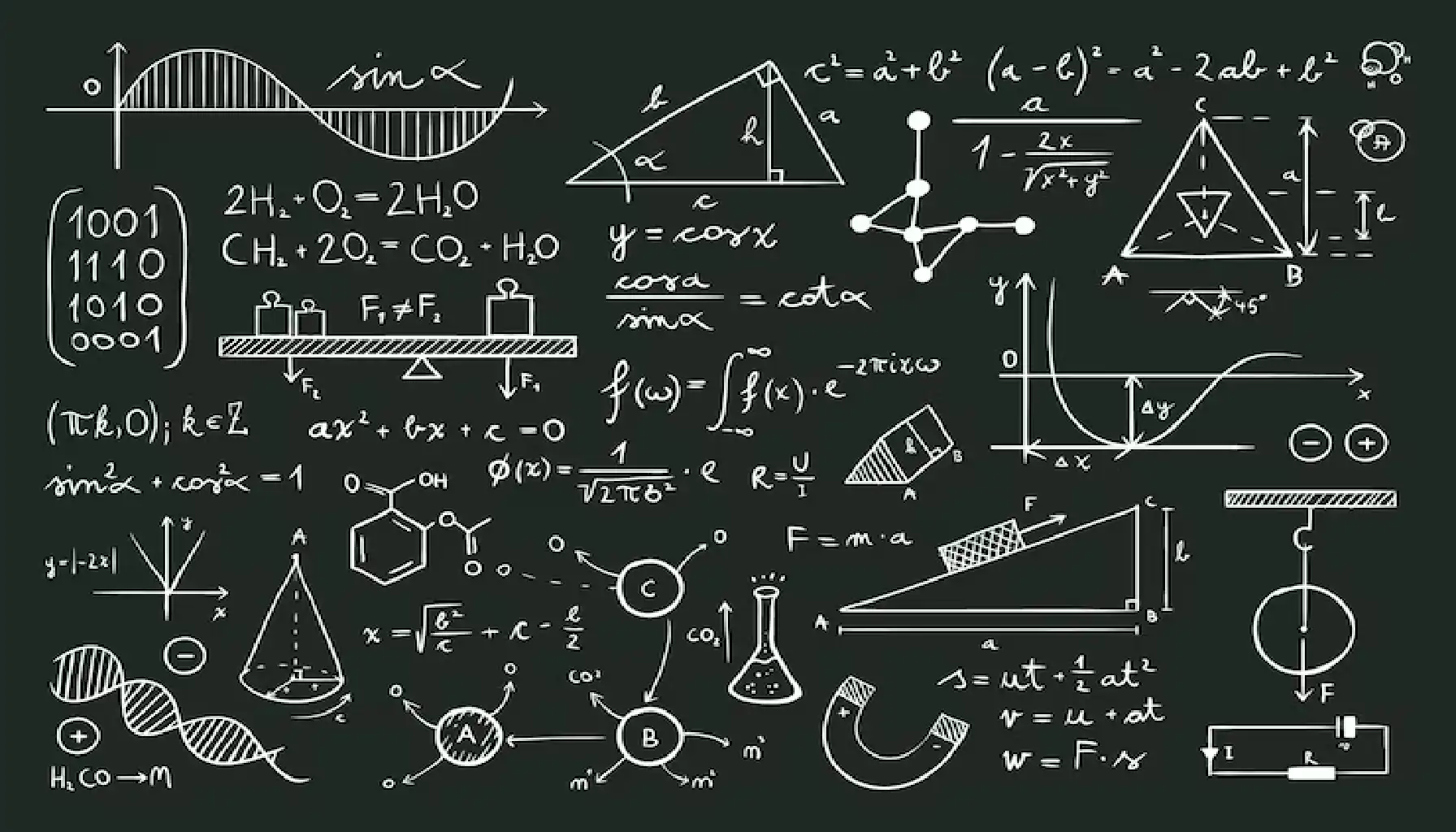What Is Logical-Mathematical Intelligence? Definition & Tips

Contents:
Human beings are naturally diverse – it is in our nature as a species to differ and perform disparate functions in society. Some of us are attracted to words, music, and stories; others may thrive on numbers, logic, and problem-solving… Should you assign yourself to the latter group, rejoice: you may possess what psychologist Howard Gardner calls logical-mathematical intelligence.
The concept of LMI, which, in broader terms, refers to one’s ability to reason logically, is a vital constituent that lays the foundation for one to process information and solve complex tasks. But what is the logical mathematical intelligence definition from the scientific perspective? What does this mean, and how to train your brain to become more flexible, logical, and analytically sharp?

What Is Logical Mathematical Intelligence?
Here Come the Basics
The study of human cognitive abilities has long tried to understand what intelligence truly is, how to define it, measure it, and recognize its forms (if they exist). Before the 20th century and during this period, intelligence was seen as a narrow concept, which could be assessed through specially designed IQ tests that mainly focused on mathematical skills and reasoning.
However, psychologist Howard Gardner offered a new perspective with the introduction of his Theory of Multiple Intelligences in 1983. As per his work, intelligence is not a single ability but a variety of forms that altogether constitute the distinctive cognitive profile of a person.
Originally, Gardner identified eight (or, as sometimes stated, nine) forms of intelligence, each responsible for a distinct way of processing information:
Verbal-Linguistic I (a knack for language, e.g., speaking, writing, storytelling, or interpreting meaning through words)
Logical-Mathematical I (an analytical mindset that is formed by logic, numbers, and structured problem-solving skills)
Spatial I (the ability to "see" and rearrange shapes, spaces, and visual details)
Musical I (a profound understanding and love for sound patterns, rhythms, and melodies)
Bodily-Kinesthetic I (a set of skills that allows people to express themselves through movement and touch)
Interpersonal I (a natural ability to read emotions, build relationships, and get through social situations effectively)
Intrapersonal I (an inner power that helps one understand their own emotions, motivations, and cognitive skills)
Naturalistic I (a sensitivity to nature)

Logical-Mathematical Intelligence Definition
Among all, LMI is one of the most obvious and widely studied forms, for it directly impacts the academic performance of children, quantitative problem-solving, and abstract thinking, not to mention. According to Howard Gardner, logical-mathematical intelligence is the ability to analyze problems logically, carry out mathematical operations, and conduct scientific investigations.
As a rule, people strong in LMI often enjoy doing complex tasks, conducting experiments, solving riddles, and relying on logic first. Indeed, it is not about good math only. Yes, those who excel in LMI are genuinely gifted, but their abilities extend beyond and cover something broader, i.e., systems, problems in general, and logic as well.
The Main Characteristics of Logical/Mathematical Intelligence
The research introduced at international conferences (e.g., SEADRIC 2019) proves that LMI refers to a mode of thinking that is based on structure, precision, and rational analysis. According to researchers Willis and Johnson (as per D. P. Arum et al., Students’ logical-mathematical intelligence profile), this intelligence encompasses five key domains.
Classifying | The ability to organize objects, ideas, or information into categories based on shared features. |
Comparing | The skill in identifying and analyzing similarities and differences between concepts, quantities, or problems. |
Basic Numerical Operations | Fuency with fundamental arithmetic, calculations, and manipulation with numbers. |
Inductive and Deductive Reasoning | The capacity to think both from specific observations to general principles (induction) and from general rules to specific outcomes (deduction). |
Making and Testing Hypotheses | A scientific mindset focused on predicting outcomes, testing ideas, and drawing conclusions from evidence. |
The portrait of a person with high levels of LMI is generally the same: they may adore solving puzzles, analyzing systems, working with data, and finding solutions all the time. However, it may not be confined to scientific research – the areas are as diverse as people are.
Professions & Fields Where It Shines
So, here comes the question: what are the most appropriate logical mathematical intelligence careers? Those who possess strong LMI often work in fields that require analytical thinking and structured approaches, though calculations are not mandatory. Where would one thrive then?
Profession / Field | Why It Is a Good Fit |
Mathematician / Statistician | Involves abstract reasoning, pattern recognition, and quantitative analysis at an advanced level. |
Computer Programmer / Software Developer | Requires logical sequencing, algorithmic thinking, and problem-solving through code. |
Scientist / Researcher | Involves hypothesis testing, experimentation, data analysis, and systematic exploration. |
Engineer (all types) | Combines technical knowledge with structured thinking to solve both practical and theoretical problems. |
Economist / Financial Analyst | Requires the ability to model complex systems, interpret data, and predict trends. |
Philosopher / Logician | Demands strong deductive and inductive reasoning and the ability to construct and critique arguments. |
Data Analyst / Data Scientist | Focuses on extracting data with the use of statistical and computational methods. |
Cryptographer / Cybersecurity Analyst | Relies on pattern recognition, algorithmic logic, and structured thinking. |
Actuary | Uses mathematics and statistics to assess risk (often in insurance and finance industries). |
Architect / Urban Planner | Involves spatial reasoning and mathematical precision. |
How to Identify If You Have LMI High
LMI can be revealed from a very young age, when a person is introduced into the educational field with a consistent learning environment and opportunities to test. Here are some common signs that you might have high mathematical/logical intelligence:
You enjoy solving puzzles and strategy games, e.g., Sudoku, chess, or brain teasers.
You have strong numerical skills, i.e., calculations, mental math, and patterns in numbers.
You see the world as a system.
You notice patterns and inconsistencies, e.g., in behavior, numbers, or arguments.
You enjoy abstract and theoretical thinking
You approach problems methodically, with trial and error, hypotheses, and conclusions.
You value structure and organization, e.g., lists, frameworks, flowcharts, and orderly environments.

The Most Efficient Ways to Improve LMI (Scientifically Approved)
Although LMI is considered to be mainly innate, it can still be improved via targeted mental and even physical activities. In fact, brain development and cognitive performance can improve with the right habits and tools, which we are pleased to present below.
Practice Problem-Solving Regularly
If possible, try to solve puzzles, logical riddles, math problems, and strategy games to sharpen reasoning and numerical skills. Consistency is the key. The more you challenge your brain, the more it prospers.
Study Abstract Concepts Through the Real World
Explore math, logic, or science topics through practice. This could include analyzing sports statistics, budgeting, coding small programs, or experimenting with probabilities and patterns in daily life. By the way, you are free to use digital resources and find activities you would be interested in online.
Turn to Physical Activity to Boost Cognitive Function
The latest researches define that there is a connection between physical performance and logical–mathematical abilities. Studies by Chaddock et al. (2015) and Esteban-Cornejo et al. (2019) highlight that regular physical exercise can enhance brain structure (especially gray and white matter volume in areas tied to mathematical reasoning). This means that staying active keeps your mind fit, too.
Sleep Well and Fuel Your Brain with Healthy Nutrition
Sleep supports memory consolidation and logical reasoning, while brain-friendly foods rich in omega-3s, antioxidants, and complex carbohydrates facilitate cognitive functions. Please do not underestimate the power of recovery and nourishment, as they create a fine background for you to grow.
Train Your Brain with Mind Elevate
There exist apps that are designed to boost brain capabilities through engaging games. This is what Mind Elevate is about. As such, it targets the core skills, i.e., memory retention, attention and concentration, logical reasoning, math fluency, and musical perception. Select the game you like and practice daily to see results. Only 10-15 minutes may change the quality of your life for good.

LMI is not a rare phenomenon. It is a cognitive “feature” which is expressed differently across the entire humankind. We are bioLOGICAL creatures, and intelligence, no matter which sphere it may be attributed to, is ultimately rooted in the workings of our brain. Science and experience, intra and inter – understand your level, take measures to improve it, and let your life shape it as it should be.





